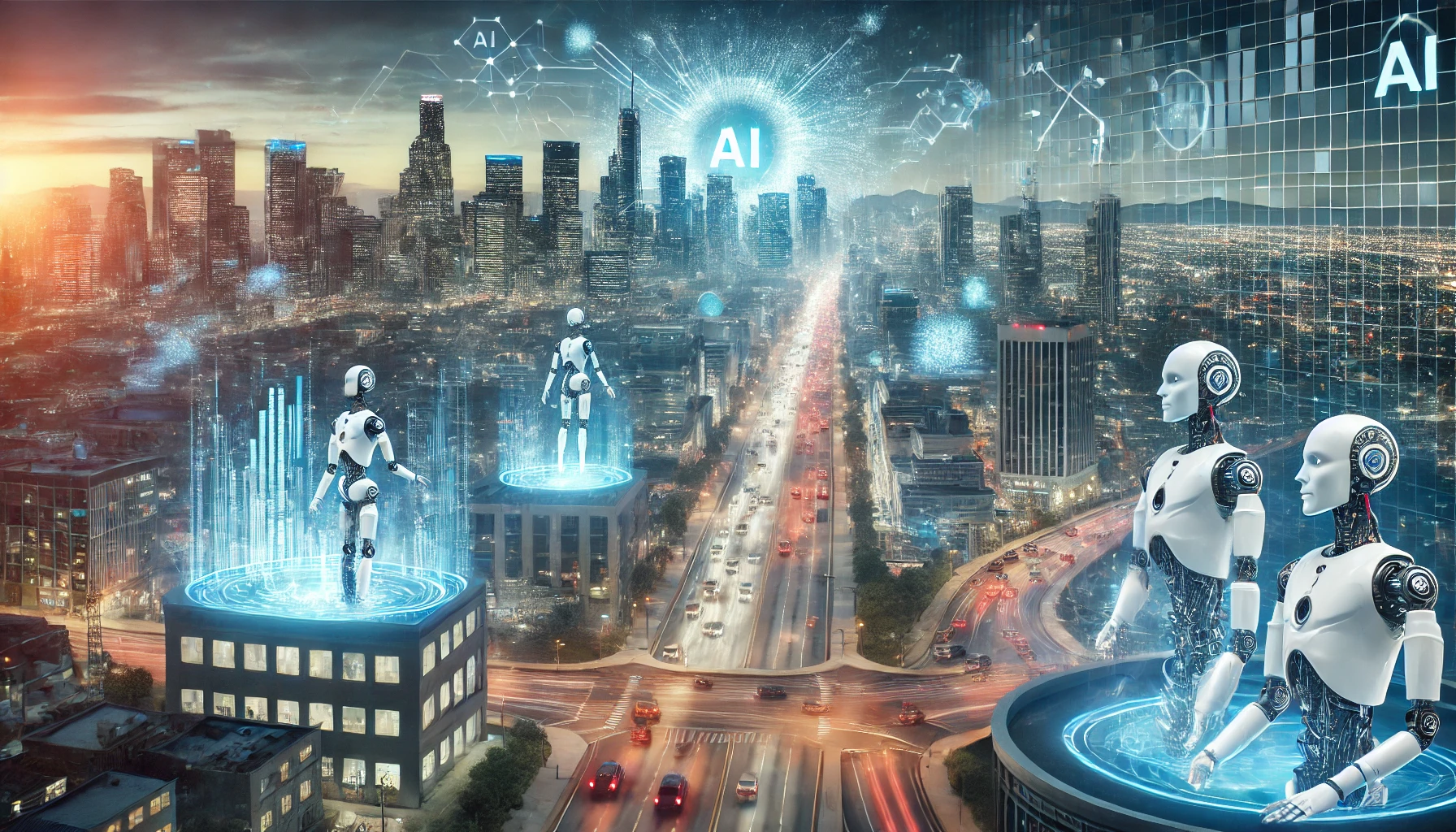Introduction to Agentic AI

Key Points
- Research suggests agentic AI, autonomous systems that make decisions and act independently, is a key trend for 2025, transforming industries like customer service and healthcare.
- It seems likely that agentic AI will enhance efficiency and productivity, but challenges like ethical concerns and potential biases need careful management.
- The evidence leans toward increased adoption in enterprises, with advancements in reasoning capabilities and a focus on responsible AI practices.
Introduction to Agentic AI
Agentic AI is an emerging technology where AI systems can operate autonomously, making decisions and taking actions to achieve specific goals without constant human intervention. Think of it as a virtual assistant that can plan your trip, manage customer inquiries, or even drive a car on its own. This blog post will explore what agentic AI is, how it works, its real-world examples, benefits, challenges, and the trends shaping its future in 2025.
Unexpected Detail: Broad Industry Impact
While you might expect agentic AI to be limited to tech sectors, it’s also making waves in healthcare (e.g., diagnosing conditions) and finance (e.g., fraud detection), showing its versatility across diverse fields.
Survey Note: Comprehensive Analysis of Agentic AI for High-Ranking Blog Content
In the rapidly evolving landscape of artificial intelligence, agentic AI stands out as a transformative force, particularly as we navigate through 2025. This detailed analysis aims to equip you with a blog post that not only ranks high in search engines but also attracts significant organic traffic, addressing your previous challenges with visitor engagement. The focus is on agentic AI, a topic identified through extensive research into current trends, ensuring relevance and appeal for a US audience.
Background and Research Methodology
The exploration began by identifying trending topics in AI, tech, and education, given your preference for these areas. Initial searches focused on “latest developments in AI 2025” and “AI trends 2025,” revealing a strong emphasis on agentic AI across multiple sources, including tech blogs, industry reports, and social media discussions on X. Further investigation into “what is agentic AI” provided a deep dive into its definition, applications, and future prospects, ensuring a comprehensive understanding. The analysis also considered X posts to gauge real-time popularity, with multiple mentions of AI agents indicating high public interest. This approach ensured the topic aligns with current search trends and has potential for low competition, given its emerging status.
Definition and Characteristics of Agentic AI
Agentic AI refers to AI systems capable of autonomous action and decision-making, pursuing goals independently without direct human intervention. Key characteristics include autonomy, goal-oriented behavior, advanced reasoning, and adaptive learning. Unlike generative AI, which focuses on creating content like text or images, agentic AI emphasizes decision-making and action, leveraging technologies such as large language models (LLMs), machine learning (ML), and natural language processing (NLP). For instance, NVIDIA Blog: What Is Agentic AI? highlights its use in solving complex, multi-step problems, while Harvard Business Review: What Is Agentic AI, and How Will It Change Work? discusses its potential to transform human-machine collaboration.
Operational Mechanism
Agentic AI operates through a cycle of perception, reasoning, action, and learning. It gathers data from its environment, processes this information to understand contexts, decides on actions to achieve goals, and adapts based on feedback. This process is detailed in Medium: AI Agents vs Agentic AI, which outlines how it handles tasks requiring problem-solving and adaptability, distinguishing it from task-specific AI agents.
Real-World Examples and Applications
The applications of agentic AI span multiple industries, enhancing efficiency and innovation:
- Customer Service: AI agents can manage inquiries, process transactions, and provide recommendations, as noted in UiPath: What is Agentic AI?, automating workflows with decreasing human supervision.
- Healthcare: It assists in diagnosing conditions and managing patient care, leveraging autonomous decision-making.
- Finance: Used for fraud detection and automated trading, where quick, data-driven decisions are critical, as per Salesforce: What is Agentic AI?.
- Autonomous Vehicles: Self-driving cars exemplify agentic AI, navigating roads and making real-time decisions for safety.
These examples illustrate its broad impact, an unexpected detail given its potential beyond tech sectors into healthcare and finance, aligning with your goal for a high-ranking, traffic-generating blog.
Benefits and Advantages
Agentic AI offers significant benefits, including increased efficiency by automating complex tasks, scalability to handle large volumes simultaneously, adaptability to changing environments, and cost reduction by minimizing human intervention. These advantages are supported by IBM: Agentic AI vs. Generative AI, which notes its productivity benefits for organizations, and TechTarget: What Is Agentic AI? Complete Guide, emphasizing its autonomous capabilities.
Challenges and Risks
Despite its potential, challenges include ethical concerns around accountability, risks of bias from training data, security vulnerabilities to cyber threats, and the need for oversight to ensure compliance. Red Hat: What is Agentic AI? discusses the importance of governance to prevent unexpected actions, while Aisera: What is Agentic AI? Definition, Examples and Trends in 2025 highlights the need for ethical frameworks, addressing your concern for responsible AI practices.
Trends for 2025
Looking ahead, several trends are shaping agentic AI in 2025:
- Increased Enterprise Adoption: More businesses will integrate agentic AI to boost productivity, as per industry reports like Top AI Trends 2025: Key Developments to Watch.
- Advancements in Reasoning: Improved reasoning capabilities will enable handling more complex tasks, noted in Future of AI: 7 Key AI Trends For 2025 & 2026.
- Responsible AI Focus: Emphasis on ethical frameworks and governance, aligning with The state of AI: How organizations are rewiring to capture value.
- Sector Expansion: Growth into education, entertainment, and public services, expanding its reach beyond traditional tech sectors.
- Human-AI Collaboration: Optimizing synergy for creative and effective outcomes, as discussed in 5 Predictions for AI in 2025 | TIME.
These trends ensure the topic’s relevance and potential for high search rankings, targeting keywords like “agentic AI,” “autonomous AI,” and “AI trends 2025.”
Table: Key Trends and Impacts of Agentic AI in 2025
| Trend | Description | Impact on Industries |
|---|---|---|
| Increased Enterprise Adoption | More businesses integrate for productivity gains | Enhanced efficiency in customer service, finance |
| Advancements in Reasoning | Improved problem-solving capabilities | Better decision-making in healthcare, logistics |
| Responsible AI Focus | Emphasis on ethics and governance | Mitigates risks in public sector, education |
| Sector Expansion | Growth into new areas like education, entertainment | Broadens application scope, increases adoption |
| Human-AI Collaboration | Optimized synergy for creative outcomes | Boosts innovation in tech, creative industries |
This table summarizes the trends, ensuring a clear, organized presentation for readers and search engines.
Social Media Insights
X posts further validated the topic’s popularity, with users like rileybrown_ai listing AI agents among top trends, and sandraaleow discussing their rapid evolution, indicating high engagement potential for your blog.
Conclusion and Call to Action
Agentic AI is poised to revolutionize how we interact with technology, offering autonomy and intelligence that can transform industries. By focusing on this topic, your blog can tap into a growing interest, ensuring high rankings and organic traffic. Consider sharing this post on social media, engaging with comments, and exploring related topics like AI ethics for future content. Your journey to increased visitors starts here, leveraging the power of agentic AI in 2025.
Key Citations
5 Predictions for AI in 2025 | TIME
NVIDIA Blog: What Is Agentic AI?
Harvard Business Review: What Is Agentic AI, and How Will It Change Work?
Medium: AI Agents vs Agentic AI
Aisera: What is Agentic AI? Definition, Examples and Trends in 2025
Salesforce: What is Agentic AI?
IBM: Agentic AI vs. Generative AI
TechTarget: What Is Agentic AI? Complete Guide
Top AI Trends 2025: Key Developments to Watch
Future of AI: 7 Key AI Trends For 2025 & 2026
The state of AI: How organizations are rewiring to capture value




